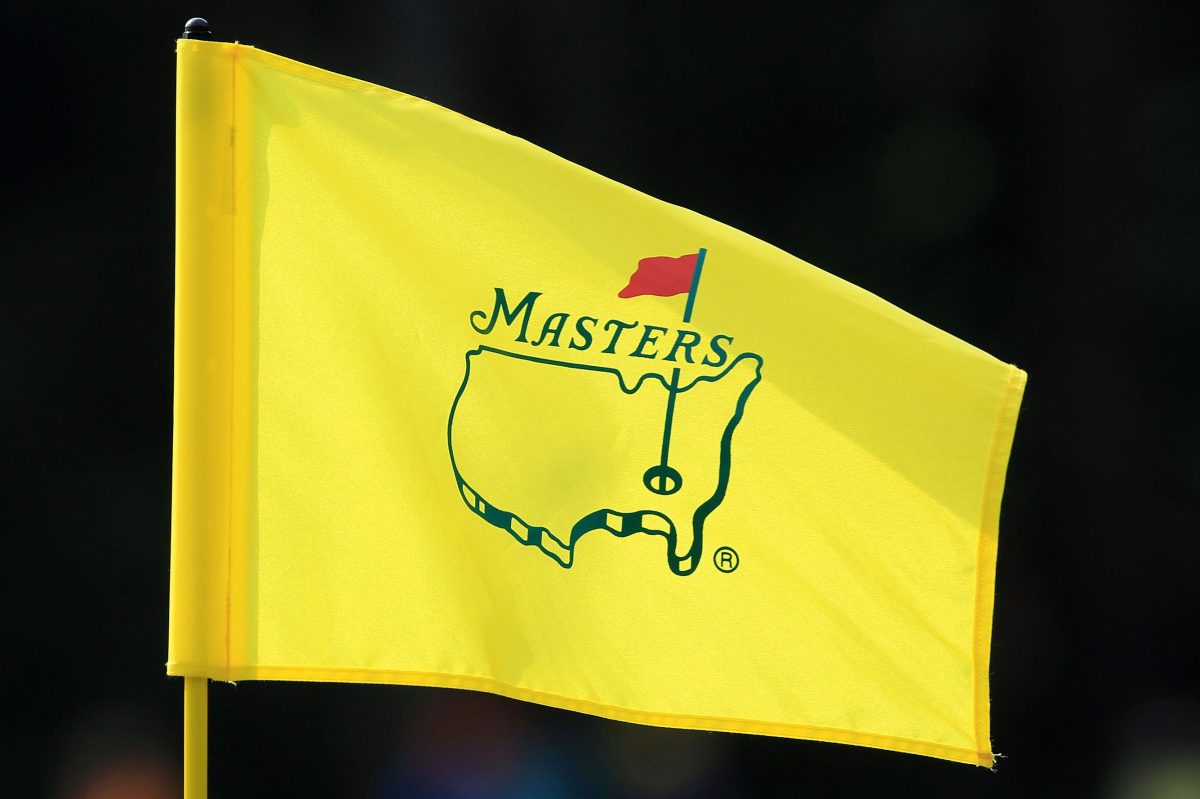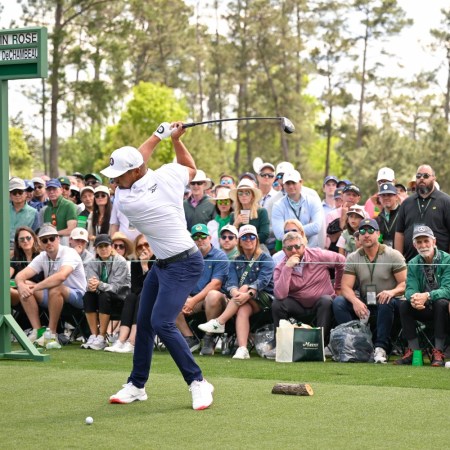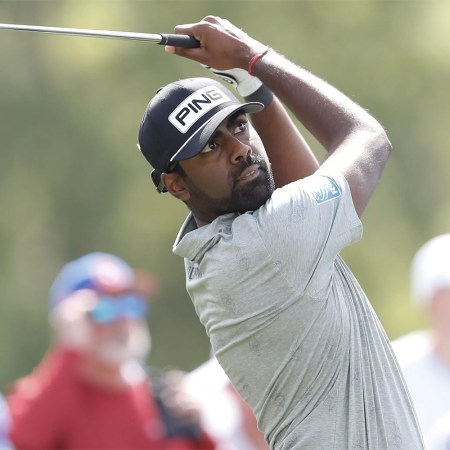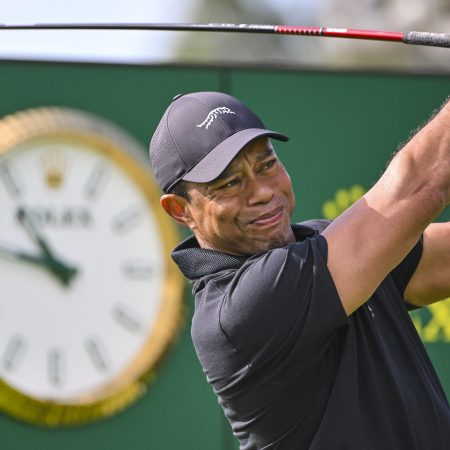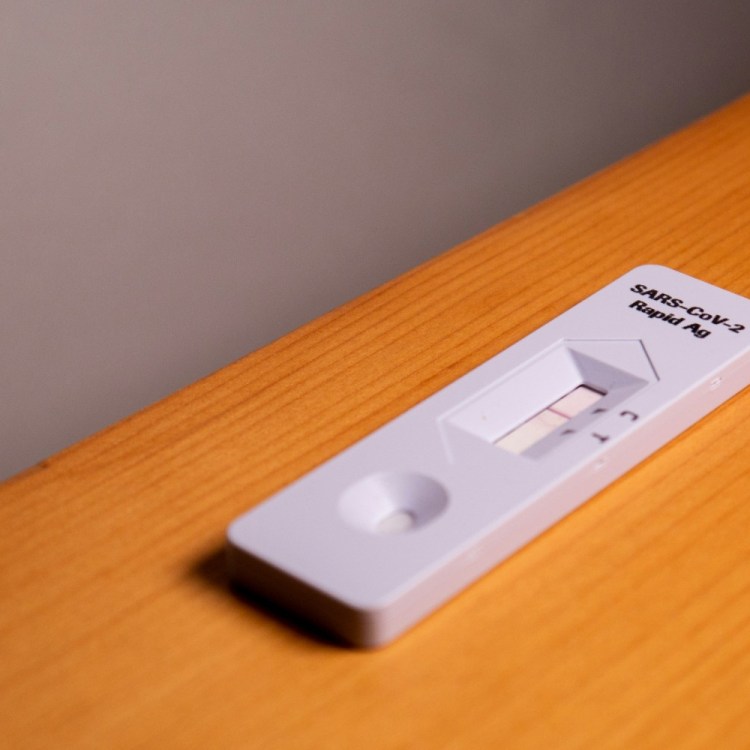In the mid-2000s, near the peak of Trevor Immelman’s playing career, the South African golfer remembers his coach still recording each round of The Masters on VHS. After each day, he’d scrub through the broadcast to find which of his shots ESPN or CBS chose to air, a painstaking process that didn’t always lead to fruitful results. But more than a decade later, when The Masters app developed its MyGroup feature, allowing players and fans to watch every shot on every hole, Immelman marveled at the technological innovations that could play a major factor in his game. “The ability as a competitor to be able to go back at the end of the day and watch every single shot you hit isn’t something we are used to and haven’t had the ability to do,” he says. “I can keep track of so many different things as the day and tournament is progressing.”
This week, as he prepares to call the 87th Masters from his new perch as CBS’s lead golf analyst, Immelman is eager to utilize even more of the app’s ever-increasing features. Thanks to a partnership that’s lasted more than 30 years, IBM and The Masters unveiled two more innovations to its digital experience, adding Artificial Intelligence generated commentary and hole-by-hole player predictions to provide fans a more insightful and colorful way to keep up with their favorite players. Considering it will be his first time sitting beside Jim Nantz at Butler Cabin in Augusta, Immelman is grateful he’ll have tools including the new AI-enhanced features at his disposal to ease his transition to The Masters. “I’m using that as a confidence builder,” Immelman says. “We’re able to access information and data so much quicker that it’s not as cumbersome.”
Specifically, the AI commentary enables Masters app users to listen to detailed golf narration for more than 20,000 video clips over the course of the tournament. The technology is still young and rather simplistic (“Tiger Woods, first hole, tee shot, 475 yards,” it will spout, for example), but it gives helpful context for what might otherwise be a random shot in the middle of an unknown and quiet fairway.
Because of the distinct nature of The Masters, IBM consultants also spent time teaching the AI to speak the language of Augusta, directing it to call sand traps “bunkers” and substituting “rough” for “second cut.” “We started to think how could we fill in the sound?” says Noah Syken, vice president of sports and entertainment partnerships at IBM. “We captured all these shots, we had this experience, but there were these broken moments with silence. And we wanted users to be able to turn on sound and do that in a very efficient way.”
“The first time I heard about it I absolutely was like, ‘Well this could be coming after my job and put me out of business,’” Immelman laughs. “But the examples I’ve seen so far…you’re using this feature to show you the distance, to show you what stroke it is. It’s just giving the viewer a little snapshot.”
The Rich, Creamy, Piquant History of the Masters’ Pimento Cheese Sandwich
The $1.50 snack is just as much of an institution at Augusta as Amen Corner or the green jacketIn an age of widespread sports betting and the inclusion of golf as a fantasy sports option, IBM wanted its AI technology to impact those arenas, too. That meant looking at six years and 120,000 shots worth of data from The Masters and then creating predictions for each player. Based on a golfer’s fluctuating performance, the predicted scoring for each hole will constantly update and shift, hoping to capture a more accurate understanding of a player’s round.
“One thing that is important to The Masters is growing the game of golf, making it more accessible to all types of people,” Syken says. “Technology-centric younger people will tend to gravitate more towards these capabilities, and that’s one of the audiences that we want to draw into the game of golf.”
Without long-term planning and commitment, Syken believes these innovations wouldn’t be possible. What started in 1996 with Masters.com has grown into a dynamic sports app, a product of being able to synthesize large chunks of data that are stored in its cloud and can inform fans across the world how John Rahm or Tommy Fleetwood will fare on the ninth hole.
Back at the beginning of the partnership, Syken remembers, “just to get a live score on a website was a massive accomplishment,” but eventually, the brainstorms of engineers focused much further down the road. “What if an AI could be the director of The Masters?” Syken says. “That was a north star we set out. We started to think about the things necessary to create that kind of experience.”
Of course, golf also has its eyes on the future in regard to technology. Last month, the R&A and USGA put together a Distance Insights Project that proposed a golf ball rollback at the elite level, which would effectively reduce hitting distances. The Model Local Rule, which will be decided on after the summer, would ensure that competitors use a ball that travels a predicted 15–20 yards shorter.
Though few professional golfers have come out in support of the proposal, Immelman agrees that the men’s game has developed a distance problem, citing Augusta National’s lengthening over the last two decades. “The technology is great, but the athletes have improved as well,” he says. “The training methods, much like the improvements on the app, [mean] athletes are able to fast-track and learn quicker and recover quicker and get faster.”
In the buildup to a new major season, it’s a hot-button topic that Immelman is interested to see develop before a final vote is cast. Much like IBM has accounted for the growth in AI into the modern landscape, Immelman wonders if a 5% rollback is enough for the game by the time it could be implemented in a few years. “Should we be making it 10% and just rip the band-aid off and have a complete reset?” Immelman says. “Should we do this across the board for all golfers, recreational as well?
Where is the cutoff and how does all of that work?” Until then, he’s eager to see whether Rory McIlroy will complete the grand slam, Scottie Scheffler will repeat as Masters champion for what would only be the fourth time in history, or if Tiger Woods will rekindle some Augusta magic. “In this day and age, we really haven’t seen anybody separate themselves the way Tiger was able to,” Immelman says, before leaning into a broadcaster tease: “We have probably 10-20 players that have a legitimate shot.”
The Charge will help you move better, think clearer and stay in the game longer. Subscribe to our wellness newsletter today.
